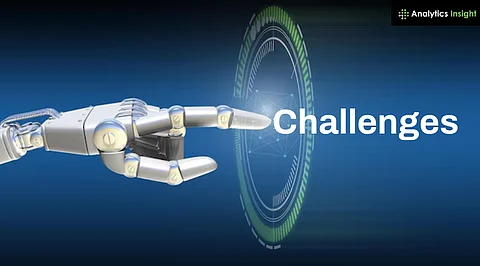

AI faces serious risks like bias, privacy issues, and ethical concerns in 2025.
Transparency and fairness must be priorities for future AI systems.
Bridging the digital divide is key to making AI accessible to all.
The field of Artificial Intelligence (AI) has advanced significantly in recent years. AI is responsible for driving chatbots as well as cars. Nonetheless, AI systems have many gaps. As the technology improves, it also encounters numerous obstacles. Let’s take a look at some of the hurdles that AI faces as it continues to evolve.
Here are the main challenges of Artificial Intelligence:
One of the hardest problems to overcome is bias. AI systems gather knowledge from data. A biased dataset will cause a biased result from the AI. The action might not be limited to this instance.
Certain groups can benefit from the existence of hiring tools. Facial recognition technology may not be as accurate for individuals with darker skin tones. There are actual problems that result from these flaws.
A study done by MIT in 2024 found that more than 60% of AI applications contained some degree of bias in their testing. Such a problem should be addressed immediately.
It is often unclear how AI arrives at its decisions. It is commonly referred to as the “black box” challenge. Neither users nor developers might be able to explain the steps that AI uses to reach its decisions.
Because AI is not entirely clear, many find it difficult to entrust it. In healthcare and law, we must understand “why” things are done just as much as we need to understand the results.
Governments are urging for “explainable AI” at the moment, although progress thus far has been slow.
AI leads to major challenges in ethics. Is it right to use AI instead of hiring humans in some jobs? Is it needed as a tool in fighting wars? These problems are tough to solve.
According to World Economic Forum data, 85 million jobs could be lost to AI by 2025.
As a result, workers feel anxious, and businesses are required to provide new training programs to their employees.
Deepfakes and misinformation are significant concerns from an ethical perspective, as warned by experts. If AI is used improperly, it can be extremely hazardous.
Also Read: Ethical Challenges in Artificial Intelligence Development
Good AI performance relies on having sufficient data. Still, collecting an excessive amount of data raises privacy concerns. People would like to decide how their data is used.
Even in 2025, data leaks and misuse continue to be significant problems. Accidental leaks of sensitive information are a potential risk with AI tools. Hackers can exploit AI systems.
Though regulations like GDPR support better data privacy, it is not yet enforced everywhere at the same level.
AI is expensive. Developing smart systems needs money, hardware, and experts. Small businesses often can’t afford to use advanced AI tools.
This creates a digital divide. Big tech grows stronger while others fall behind. In 2025, many startups still struggle to adopt AI effectively. Reports show that over 70% of AI risk investments in 2024 came from just 10 global companies.
Solving these challenges will take time. But progress is possible. Experts suggest using diverse datasets to reduce bias. It calls for the use of open-source models to improve transparency.
Better laws and stronger ethical AI guidelines are also key. If everyone works together, AI can grow more safely and smartly.
Also Read: Top Trends in Artificial General Intelligence Set to Reshape 2025
AI is transforming the world, but it also presents significant challenges. From bias to privacy risks, these issues can’t be ignored. Solving them will make AI more useful for everyone.
Governments, companies, and users all have a role to play. With the right steps, the AI of the future can be both secure and responsible.
